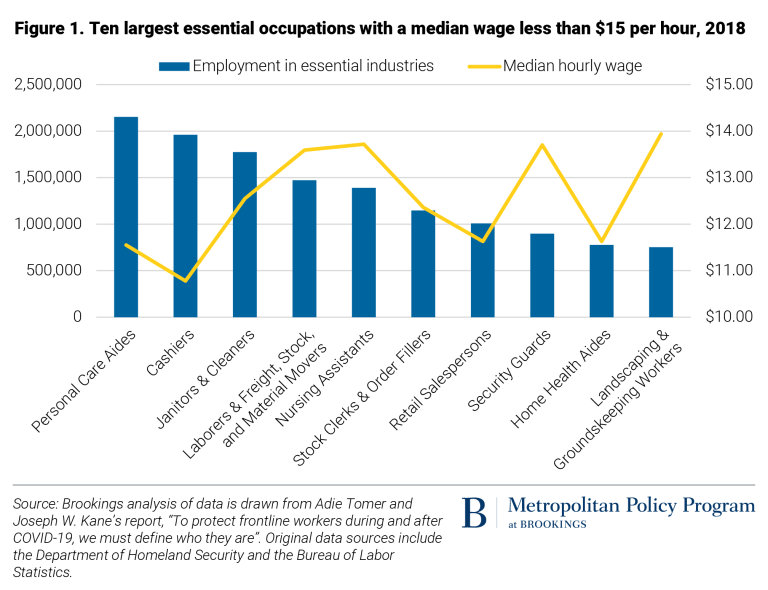
Medicare discharge appeals can be a great way for Medicare beneficiaries to protect and obtain the health care they need.
Medicare is a program that covers hospital stays, home health, hospice and many other medical services. It is the principal form of medical insurance for Americans above the age 65. This is the only form of health insurance that's available to people with certain disabilities.
If you think that you are being discharged too soon from a hospital, there is a Medicare process called an expedited appeal. You have the opportunity to have your case evaluated by a QIO (quality improvement organization).
No matter how long or where you have been in hospital, you can appeal the final discharge at any time.

You will be contacted by the QIO within 24 hours after it has received all of the information needed. It will tell you whether it agrees or disagrees, and then how to proceed.
The hospital and doctor should be able explain the reasons for your discharge when you get a discharge decision. The hospital should also be able to send you and the QIO a Detailed Notice of Discharge, which includes Medicare coverage rules in writing.
After receiving the Detailed Notice of Discharge, you can file an expedited appeal with the QIO by phone or in writing. Tell them your reasons for appealing, and give all the relevant information you have. You can submit additional documents to support your claim, such as your medical records and letters from doctors.
The appeals process can be difficult and lengthy. You should be patient and make sure you follow the procedure carefully.
Medicare Advantage enrollees who are facing termination of Medicare-covered services in a hospital, skilled nursing facility (SNF), home health agency (HHA), comprehensive outpatient rehabilitation facility (CORF), or hospice can request an expedited review of their medical case by the BFCC-QIO. BFCC QIOs are in charge of reviewing Medicare cases and defending the rights of Medicare beneficiaries.

If a beneficiary does not agree with the QIC’s decision, he or she may request an expedited re-evaluation and, if necessary, a hearing in front of an administrative law judge. The ALJ must make a decision on the appeal within 72 hours. If the beneficiary does not wish to appeal the decision, they must remain in the hospital and accept the QIO's decision.
The BFCC-QIO has to inform the beneficiary of their decision. The notification will include the final decision, the hospital's liability and the beneficiary’s right to appeal.
The process of appealing a medicare hospital discharge decision can take several months or even years to resolve, so it is very important to follow up with the hospital and the QIO as needed. Create a calendar, or timeline, to keep track of your progress.
FAQ
What does it mean to "health promote"?
Health promotion means helping people to stay well and live longer. It focuses more on preventing disease than treating it.
It covers activities such:
-
eating right
-
Get enough sleep
-
exercising regularly
-
Staying active and fit
-
Not to smoke
-
managing stress
-
Keeping up to date with vaccinations
-
Avoid alcohol abuse
-
Regular screenings and checks
-
Learn how to deal with chronic illnesses.
What is an infectious disease?
An infectious disease is caused by germs (bacteria, viruses, or parasites). Infectious disease spreads quickly when people come in close proximity. Examples include measles, mumps, pertussis (whooping cough), rubella (German measles), chickenpox, strep throat, tuberculosis, influenza, polio, hepatitis A and B, HIV/AIDS, herpes simplex virus, syphilis, gonorrhea, and chlamydia.
What should I know about vaccines?
Vaccines provide a very safe and effective way of keeping you healthy. Vaccines protect you from certain diseases. Vaccinations can be given at specific times throughout your childhood, adolescence, or adulthood. Your doctor will help you decide when is the best time to get vaccines.
Statistics
- The healthcare sector is one of the largest and most complex in the U.S. economy, accounting for 18% of gross domestic product (GDP) in 2020.1 (investopedia.com)
- Healthcare Occupations PRINTER-FRIENDLY Employment in healthcare occupations is projected to grow 16 percent from 2020 to 2030, much faster than the average for all occupations, adding about 2.6 million new jobs. (bls.gov)
- Consuming over 10 percent of [3] (en.wikipedia.org)
- The health share of the Gross domestic product (GDP) is expected to continue its upward trend, reaching 19.9 percent of GDP by 2025. (en.wikipedia.org)
- Price Increases, Aging Push Sector To 20 Percent Of Economy". (en.wikipedia.org)
External Links
How To
How to Locate Home Care Facilities
Home care facilities assist people who require help at home. These include elderly persons who are unable to move independently and disabled people with chronic conditions such as Alzheimer's. These facilities provide personal hygiene, food preparation, laundry and cleaning services, as well medication reminders and transportation. They often work with rehabilitation specialists, social workers and medical professionals.
Recommendations from family, friends, and local businesses or reviews online are the best ways to find a home-care service provider. After you've identified one or two providers you can start to ask about their qualifications, experience, and references. It is important to find a provider who can work flexible hours in order to fit your schedule. You can also ask if they offer 24-hour emergency service.
Consider asking your doctor for recommendations. If you don’t know where to begin, search online for “home health care” or “nursing home”. For example, you could use websites like Yelp, Angie's List, HealthGrades, or Nursing Home Compare.
For more information, you can also contact your local Area Agency on Aging or Visiting Nurse Service Association for further assistance. These organizations will be able to provide you with a list containing agencies in your local area that are specialized in home care services.
It is crucial to find a quality home care agency, as many charge very high fees for patients. Some agencies may charge 100% of a patient’s income. It is best to avoid this problem by choosing an agency with a high rating from the Better Business Bureau. Get references from former clients.
Some states even require homecare agencies that register with the State Department of Social Services. To find out what registration requirements your agency must meet, check with your local government office.
You should consider these things when selecting a home care agency:
-
Avoid any company asking you to pay upfront for services.
-
It is important to find a trustworthy and established company.
-
Particularly if you pay out-of-pocket, be sure to get proof of insurance.
-
Check that your state licenses the agency you are about to hire.
-
Ask for a written contract detailing all costs involved in hiring the agency.
-
Confirm that after discharge, the agency will provide follow-up visits.
-
Ask for a list of credentials and certifications.
-
Never sign anything without having read it.
-
Take the time to read all fine print.
-
Verify that the agency is insured and bonded.
-
Ask the agency how long they have been in business.
-
Verify that the State Department of Social Welfare has granted the agency a license.
-
Find out if there have been any complaints about the agency.
-
Call the local government agency that regulates homecare agencies.
-
It is important to ensure that staff members answering the phones are qualified to answer any questions you may have about homecare.
-
To ensure that you fully understand the tax implications of home care, consult your accountant or attorney.
-
For every home care agency you contact, always get at least three bids
-
Accept the lowest offer, but don't settle for anything less than $30 per an hour.
-
Be aware that you may be required to pay for more than one visit to a local home care agency each day.
-
Read everything before signing any contracts.